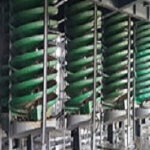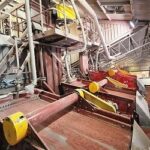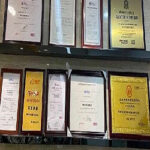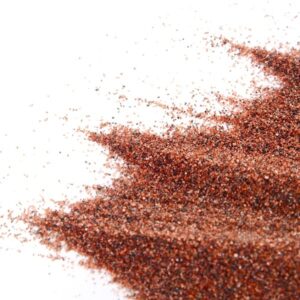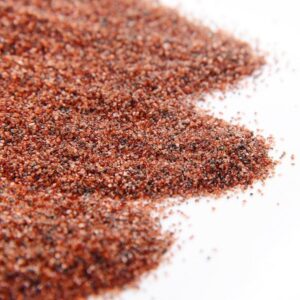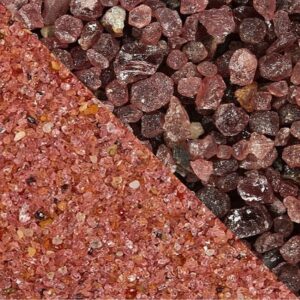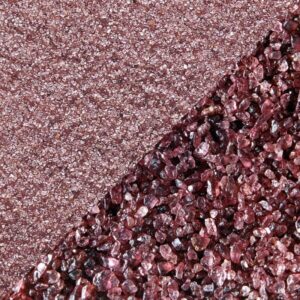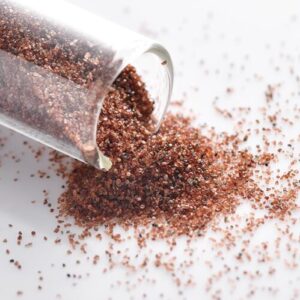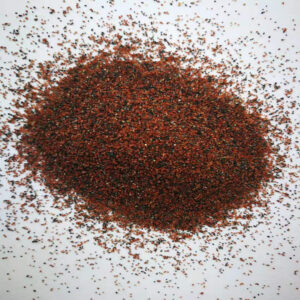Garnet Is A Safer Choice
Grit blasting always carries a certain degree of risk. No matter what material is used, workers need to be careful not to inhale the dust. It’s an unavoidable fact that there’s no such thing as a grit blasting material that is safe to inhale.
With that in mind, it’s important to choose a material that will produce less dust, such as garnet. With less dust produced, workers are less likely to ingest harmful substances. Furthermore, garnet is non-toxic. Unlike silica sand, garnet does not contain silica making it a safer alternative. However, despite long-term health effects such as damage to the respiratory system being reduced, it is vital to wear PPE when working with all abrasive materials.
Garnet Is Cleaner
Every grit blasting job involves a clean-up operation when the dust has, quite literally, settled. This is where another advantage of using garnet can be seen. The low levels of dust produced means that there’s less to clean up afterward. This can help save both time and money, getting the job finished faster.
Garnet is easy to clean in more ways than one, being both a naturally occurring substance and totally chemically inert.
Garnet Is More Cost-Effective
As garnet is a very effective abrasive for cleaning, less of it is required. This is a relatively hard, dense material that works very well. It is still possible to do an effective and complete job with a relatively low volume of garnet. As such, it is very cost-effective.
What’s more, garnet is a semi-reusable substance. As long as the grit blasting is carried out correctly, and an adequate amount of the substance is recovered afterward, the same garnet can be used several times. This is key when it comes to saving money over the long term.
Finally, garnet produces a clean surface with the benefits of high productivity and lower consumption.
 Henan Sicheng Abrasives Tech Co., Ltd was established in 2009 and is an integrate garnet mining, processing shipping ,global marketing and distribution organisation providing the high quality indusrtrial garnet for the surface preparation, waterjet cutting , water filtration and polishing industries.
Henan Sicheng Abrasives Tech Co., Ltd was established in 2009 and is an integrate garnet mining, processing shipping ,global marketing and distribution organisation providing the high quality indusrtrial garnet for the surface preparation, waterjet cutting , water filtration and polishing industries. 